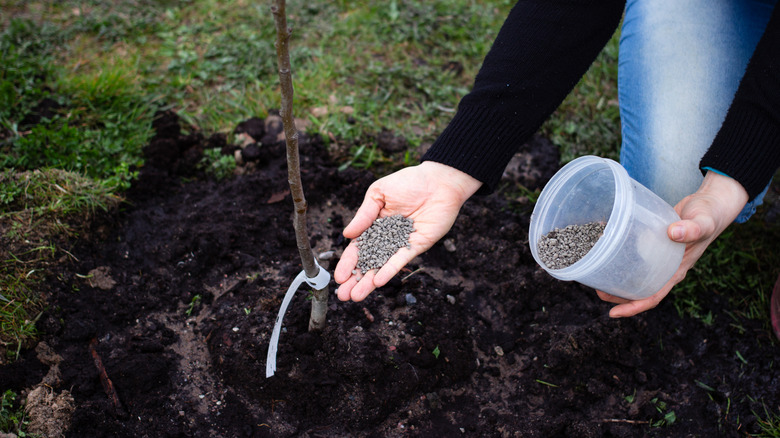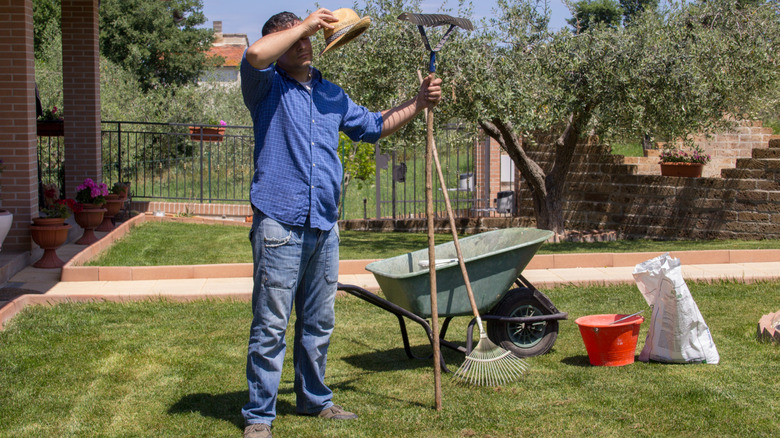The Sign From The Weather You Shouldn't Fertilize Your Lawn
A beautiful lawn can be a pride and joy in any garden, but keeping it that way takes a certain amount of upkeep. Natural ways to keep your lawn green are always preferable, but sometimes your grass might need a little extra help. Fertilizer helps to feed your lawn, working alongside the sugars made by grass blades to help your lawn green up and grow. Using grass fertilizer also helps to prevent weeds, moss, and diseases, and can speed up grass recovery on a damaged lawn. But applying fertilizer in extremely hot or cold weather can do more harm than good to your lawn, so it's vital to follow weather signs when choosing the right time to feed your lawn.
There are a few things you should never do when fertilizing your lawn, and one of those is fertilizing at the wrong time. Choosing the wrong type of weather to fertilize in can waste vital nutrients, confuse your grass and, at worst, cause harm to it. While fertilizer can benefit your lawn, it's important to apply it when it will be most beneficial to your grass.
Avoid fertilizing in extremely hot or cold weather
Although there are crucial summer lawn care tips you shouldn't skip, fertilizing in extreme heat isn't one of them. Using fertilizer in temperatures above 90 degrees Fahrenheit can actually create a phototoxic effect that could burn your grass. Plus, the fertilizer requires moisture to properly absorb, and any sudden boost in growth will stress grass at an already vulnerable time.
However, this doesn't mean that fertilizing in extreme cold is a better option. Applying fertilizer in the winter or even too early in the spring can confuse grass that is in a dormant state, making it more susceptible to damage from fluctuating temperatures. In conjunction with this, you'll also want to avoid fertilizing your lawn when it's too wet. Applying fertilizer to wet grass is a real waste of time, as wet grass and waterlogged soil mean the lawn's roots will struggle to absorb the nutrients. The excessive moisture can also cause run-off, which could harm the environment.
Instead, aim to fertilize your lawn on mild days during spring and fall. Ideally, it's best to fertilize on cool mornings when the soil is slightly moist and the soil temperature is above 55 degrees Fahrenheit. Waiting until he weather improves will help your grass to get the most out of the fertilizer and ensure it won't be burned by the chemicals.

